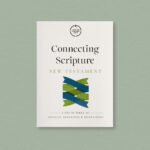The first Earth Day celebration occurred in 1970 amid social turmoil in the United States. Protests over the war in Vietnam were growing, Woodstock was in the rearview mirror, and “Let It Be” was at the top of the Billboard charts. Richard Nixon was in the White House and was the first American president to make improving the environment a policy goal.
The events of April 22, 1970, were supported by both Democrats and Republicans, intended to build awareness of real environmental problems. Environmental catastrophes like the fire on the Cuyahoga River fire in June 1969 and the deadening of the Great Lakes were public problems that required public responses. Earth Day was an attempt to raise awareness about legitimate concerns for the ecological welfare of the nation.
Unfortunately, like many good social causes, Earth Day and the environmental movement became identified with misanthropic and overtly anti-Christian ideologies. In 1967, Lynn White published a famous essay in the journal Science that blamed environmental degradation on Christianity. In 1968, Paul Ehrlich’s book The Population Bomb predicted famines and revolutions because of overpopulation. Ehrlich’s solutions included government regulation of family size and abortion on demand. Some within the environmental movement alienated theological conservatives.
When the Commission on Population Growth and the American Future published a 1972 report calling for population control using government-provided contraceptives for minors, abortion on demand, and voluntary sterilization, conservative Christians understandably reacted negatively to a form of environmentalism hostile to scriptural ideals. Environmentalism and Christian ethics were set at odds due to irreconcilable differences about human worth.
While we continue to disagree with some voices within contemporary environmental movements, there are strong reasons for theologically conservative Christians to participate in activities surrounding Earth Day and, more broadly, in environmentalism.
Gospel Engagement
Our churches spend vast amounts of time and money on outreach programs to engage our communities outside the church. We have a strong interest in engaging our neighbors with the gospel. Participating in Earth Day activities is one way we can meet with fellow citizens—many of whom need to hear the gospel—by engaging in activities for the common good and building meaningful relationships.
As people of the cross living in a world that needs to hear and see the message of the gospel, becoming cobelligerents for the common good through certain forms of environmentalism may provide opportunity to connect to our communities by being good neighbors.
When we use resources wisely, pick up trash, and maintain the landscaping in our parks, we demonstrate thankfulness for God’s work in creating the world around us. We also point forward to a future state of flourishing when a frustrated creation will be set free from “its bondage to corruption and obtain the freedom of the glory of the children of God” (Rom 8:21). Caring for creation can powerfully demonstrate God’s love.
Caring for God’s Good Creation
However we understand climate change data, we should still feel an ethical pull to care for the environment. Creation itself testifies to God’s glory (Ps. 19: 1–6). Adam and Eve were given responsibility to cultivate and keep the earth (Gen. 2:15), and proper stewardship of the environment remains a primary human function as sub-creators made in the image of God.
Evangelicals broadly agree that humans have a God-given responsibility to use natural resources wisely and maximize flourishing of all creation. However, when we say we are concerned about creation care and fail to participate meaningfully in organized efforts to care for creation, our actions undermine our rhetoric.
Participation in Earth Day events does not require agreement with every activity in a local Earth Day program or the worldview of supporting organizations. Among the many activities the Earth Day organization recommends are picking up trash in a local parks and planting trees. Such activities reflect a positive outlook on God’s creation and encourage engagement in pursuing the common good.
Pursuit of the Common Good
Jeremiah’s instructions to the Israelites headed to exile in a hostile culture seem more relevant with every passing week. He calls for the exiles to “seek the welfare of the city where [God has] sent you into exile, and pray to the LORD on its behalf, for in its welfare you will find your welfare” (Jer. 29:7). As we look for ways we can agree with an increasingly alien worldview, pursuing the common good through simple environmental actions should provide a point of contact.
“The earth is the LORD’s and everything in it” (Ps. 24:1). Just as saying the Pledge of Allegiance does not signify submission to the United States above Christ, participating in Earth Day activities does not require Earth worship or theological compromise. Even if bad theology is being proclaimed and practiced at an event, our mere attendance does not constitute affirmation. Instead, participating with our community in Earth Day activities allows for positively demonstrating our theological valuation of creation. The earth is our home; God is doing a work to restore it through Christ’s resurrection.
Download your free Christmas playlist by TGC editor Brett McCracken!
 It’s that time of year, when the world falls in love—with Christmas music! If you’re ready to immerse yourself in the sounds of the season, we’ve got a brand-new playlist for you. The Gospel Coalition’s free 2025 Christmas playlist is full of joyful, festive, and nostalgic songs to help you celebrate the sweetness of this sacred season.
It’s that time of year, when the world falls in love—with Christmas music! If you’re ready to immerse yourself in the sounds of the season, we’ve got a brand-new playlist for you. The Gospel Coalition’s free 2025 Christmas playlist is full of joyful, festive, and nostalgic songs to help you celebrate the sweetness of this sacred season.
The 75 songs on this playlist are all recordings from at least 20 years ago—most of them from further back in the 1950s and 1960s. Each song has been thoughtfully selected by TGC Arts & Culture Editor Brett McCracken to cultivate a fun but meaningful mix of vintage Christmas vibes.
To start listening to this free resource, simply click below to receive your link to the private playlist on Spotify or Apple Music.


































